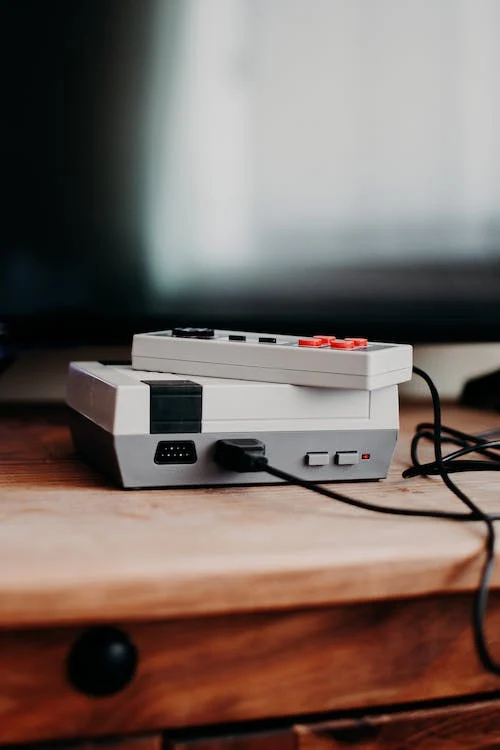Video game emulation has been a popular subject among gaming enthusiasts for decades, and for a good reason. It allows players to experience classic games on modern hardware, often with improved graphics, audio, and other features. In this article, we will delve into the history of video game emulation, discuss the legalities surrounding emulators and ROMs, and outline ways you can legally play games through emulation.
A Brief History of Video Game Emulation
The history of video game emulation can be traced back to the late 1980s and early 1990s when hobbyists and developers started creating software to mimic the hardware of gaming consoles on personal computers. The first successful emulator was Pasofami, a Nintendo Entertainment System (NES) emulator released in 1990. This marked the beginning of an era in which emulators for various consoles, such as SNES, Sega Genesis, and Atari 2600, were developed.
The rise of the internet in the 1990s facilitated the widespread distribution of emulators and ROMs (Read-Only Memory files containing game data), leading to a surge in their popularity. Emulation technology continued to advance, with the release of emulators for more modern consoles like the PlayStation and Nintendo 64 in the late 1990s and early 2000s.
In recent years, emulation has evolved even further, with the development of multi-system emulators like RetroArch and OpenEmu, which support multiple gaming platforms within a single interface. Additionally, official console manufacturers, such as Nintendo and Sony, have recognized the demand for retro gaming and released their own emulation-based products, like the NES Classic Edition and PlayStation Classic.
Are Emulators Legal?
Emulators themselves are legal, as they are simply software that replicates the functionality of a gaming console. Courts have ruled that creating and distributing emulators is a lawful activity under the principle of “reverse engineering.” Reverse engineering involves taking apart a product to understand how it works, often to create a compatible product or improve upon the original design. In the case of emulators, this means recreating the hardware of a gaming console through software.
However, distributing copyrighted material, such as BIOS files (Basic Input/Output System files that allow the emulator to function correctly) or game ROMs, is illegal. Emulators that require copyrighted BIOS files to operate may fall into a legal gray area, but as long as the emulator developer does not distribute the copyrighted material, the emulator itself remains legal.
Is Downloading ROMs Legal?
Downloading ROMs, or game files, is generally considered illegal since they are copyrighted material. Distributing, downloading, or possessing copyrighted ROMs without permission from the copyright holder is a violation of copyright law and can result in legal consequences.
There are exceptions to this rule, such as games that are in the public domain or have been released under a Creative Commons license. Additionally, some game developers and publishers have made their games freely available for download, making these ROMs legal to possess and use.
How Can I Legally Play Games Through Emulation?
To legally play games through emulation, you must obtain the game ROMs through legal means. Here are some ways to do so:
Dump your own ROMs: If you own the physical copy of a game, you may be able to create a digital copy, or “dump” the ROM, using specialized hardware or software. This ensures that you have a legal copy of the game, as you have already purchased the original media. However, this process can be complex and may not be possible for all games or systems.
Purchase games from official digital storefronts: Some console manufacturers, such as Nintendo and Sony, offer digital versions of classic games for purchase on their online stores. These digital downloads are legal and can often be used with emulators, as long as the emulator supports the specific file format. Keep in mind that modifying or distributing these legally obtained ROMs is still illegal.
Look for games in the public domain or with Creative Commons licenses: Some games have been released into the public domain or under a Creative Commons license, allowing for legal distribution and use. Websites like PDRoms and Homebrew ROMs offer a collection of such games that can be legally downloaded and played on emulators.
Use legal emulation services: Subscription-based services like Nintendo Switch Online and Antstream Arcade offer legal access to a library of classic games that can be played through emulation. These services typically require a monthly fee but provide a legal and convenient way to enjoy retro gaming.
Play open-source or homebrew games: The homebrew community creates new games for classic consoles that can be legally downloaded and played on emulators. Websites like Romhacking.net and Nesworld.com offer a variety of homebrew games and modifications for different consoles.
Conclusion
Video game emulation has a rich history and continues to be a popular way to enjoy classic games on modern hardware. While emulators themselves are legal, downloading copyrighted ROMs is generally considered illegal. To legally play games through emulation, you can dump your own ROMs, purchase games from official digital storefronts, seek out public domain or Creative Commons-licensed games, use legal emulation services, or explore the world of open-source and homebrew games. By following these guidelines, you can enjoy the nostalgia of retro gaming while respecting the rights of game developers and publishers.
